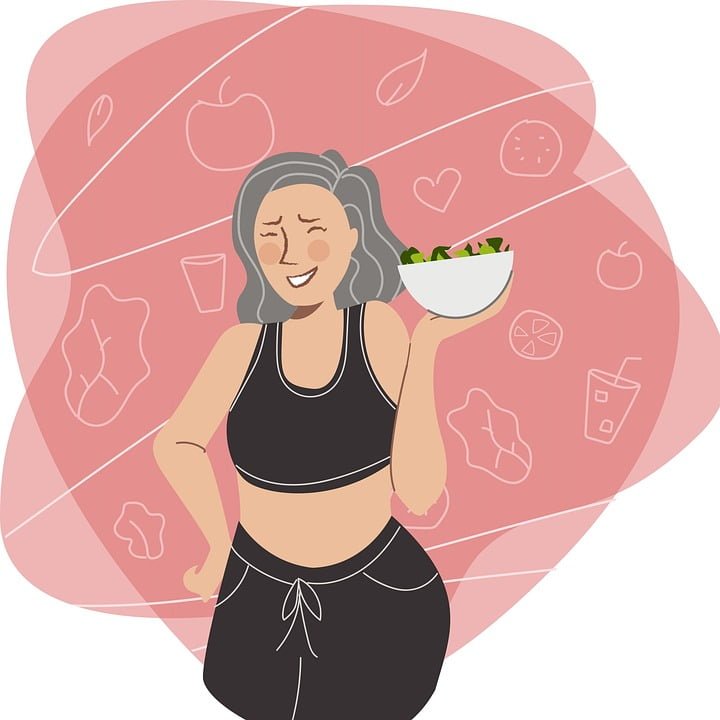
[ad_1]
Menopause Nutrition
Menopause is a natural phase in a woman’s life that marks the end of her menstrual cycles. It is a significant transition that comes with a variety of physical and emotional changes. One key aspect of managing the symptoms of menopause is through proper nutrition. Menopause nutrition plays a crucial role in helping women minimize the discomfort and health risks associated with this stage of life. In this article, we will delve into the importance of nutrition during menopause and explore the key dietary factors that can help women navigate this phase with ease and confidence.
The Role of Menopause Nutrition
Proper nutrition is essential for women going through menopause as it can help alleviate symptoms such as hot flashes, mood swings, weight gain, and bone loss. A well-balanced diet during menopause can also reduce the risk of developing chronic conditions such as heart disease, osteoporosis, and certain cancers. By paying attention to what they eat, women can effectively manage their overall health and well-being during this transition.
Key Nutrients for Menopause
During menopause, the body undergoes hormonal changes that can affect metabolism and nutrient absorption. As a result, women need to focus on consuming nutrient-dense foods that provide essential vitamins and minerals. Some key nutrients that are particularly beneficial during menopause include:
- Calcium
- Vitamin D
- Omega-3 fatty acids
- Phytoestrogens
- Probiotics
Meal Planning for Menopause
Creating a well-rounded meal plan is crucial for women approaching or experiencing menopause. By incorporating a variety of nutrient-rich foods into their diet, women can better manage their weight, maintain bone health, and support overall vitality. Consider adding the following foods to your meal plan:
- Fruits and vegetables
- Whole grains
- Lean protein sources
- Dairy or dairy alternatives
- Healthy fats
- Fiber-rich foods
Hydration and Menopause
Staying hydrated is essential during menopause, as it can help alleviate symptoms such as dry skin, hot flashes, and headaches. Women going through menopause should aim to drink plenty of water throughout the day, and also consider incorporating hydrating foods such as cucumbers, watermelon, and leafy greens into their diet.
Exercise and Menopause Nutrition
Regular physical activity is an integral part of managing menopause symptoms and maintaining overall health. When combined with a balanced diet, exercise can help women control their weight, improve mood, and reduce the risk of chronic diseases. It is recommended that women engage in at least 150 minutes of moderate-intensity aerobic activity per week, along with muscle-strengthening exercises on two or more days.
Supplements for Menopause
In some cases, women may require additional support from supplements to meet their nutritional needs during menopause. It is important to consult with a healthcare provider before starting any new supplements, as they can provide personalized recommendations based on individual health status and dietary intake. Common supplements that are often recommended during menopause include:
- Calcium and Vitamin D
- Omega-3 fatty acids
- Black cohosh
- Magnesium
FAQs
What are the best foods for menopause nutrition?
Foods rich in calcium, vitamin D, omega-3 fatty acids, and phytoestrogens are highly beneficial during menopause. Consider incorporating leafy greens, almonds, fatty fish, and soy products into your diet.
How does hydration affect menopause symptoms?
Hydration can help alleviate symptoms such as hot flashes, dry skin, and headaches. It is essential to stay hydrated to support overall well-being during menopause.
What role does exercise play in menopause nutrition?
Regular exercise can help women manage their weight, improve mood, and reduce the risk of chronic diseases during menopause. It is an essential component of overall health and well-being.
Are there specific supplements recommended for menopause nutrition?
Calcium, vitamin D, omega-3 fatty acids, and black cohosh are common supplements recommended for menopause. However, it is important to consult with a healthcare provider before starting any new supplements.
What are the dietary factors that contribute to bone health during menopause?
Consuming adequate amounts of calcium, vitamin D, and magnesium is crucial for maintaining bone health during menopause. These nutrients can be found in dairy products, leafy greens, and fortified foods.
How can menopause nutrition help manage weight gain?
A well-balanced diet can help women manage weight gain during menopause by providing essential nutrients and supporting overall metabolic health. Emphasizing whole foods and portion control can be beneficial in managing weight.
Conclusion
Menopause is a significant life transition that can be effectively managed through proper nutrition and lifestyle choices. By focusing on key nutrients, meal planning, hydration, exercise, and, when necessary, supplementation, women can navigate this phase with ease and confidence. Making informed choices about menopause nutrition can have a positive impact on overall health and well-being, allowing women to embrace this new chapter of life with vitality and optimism.
[ad_2]